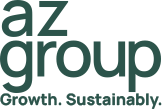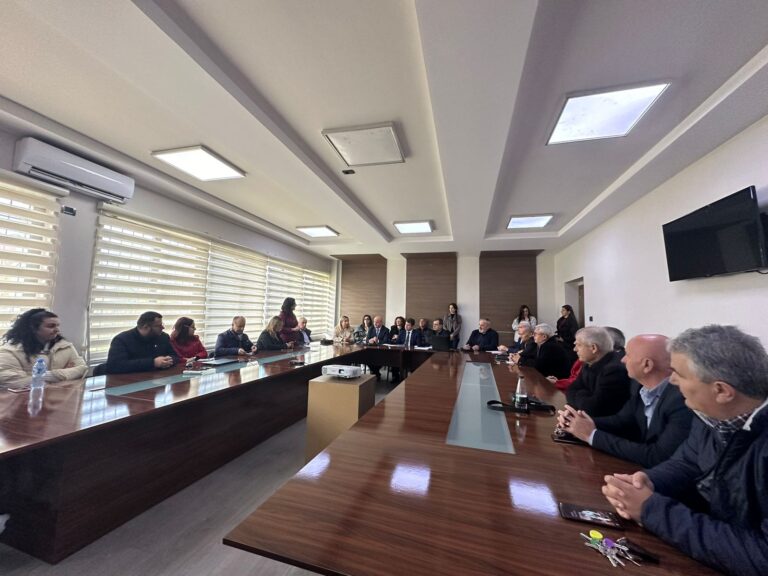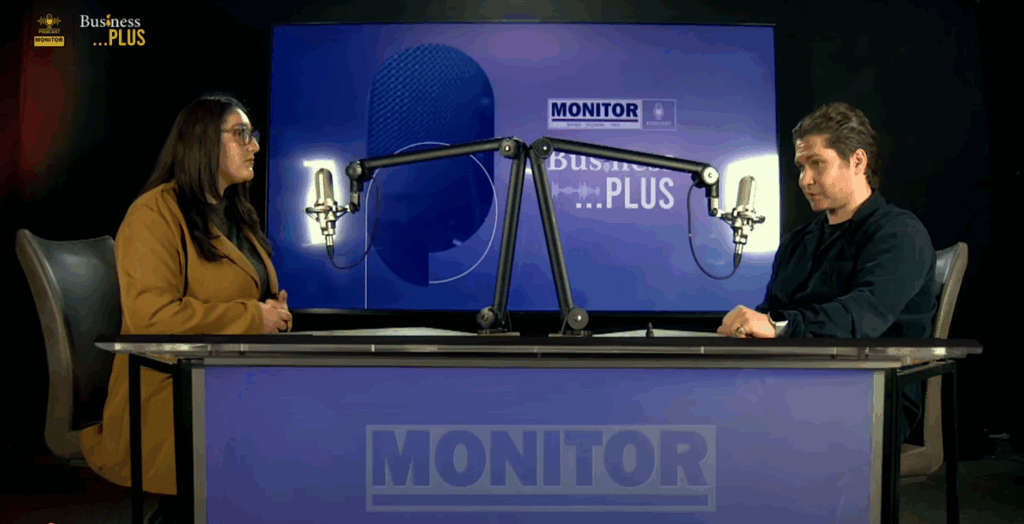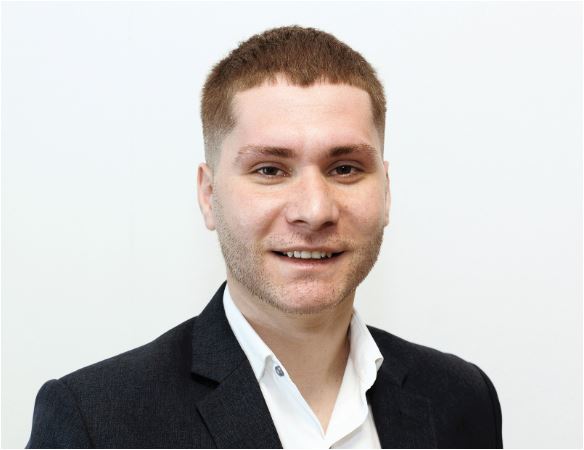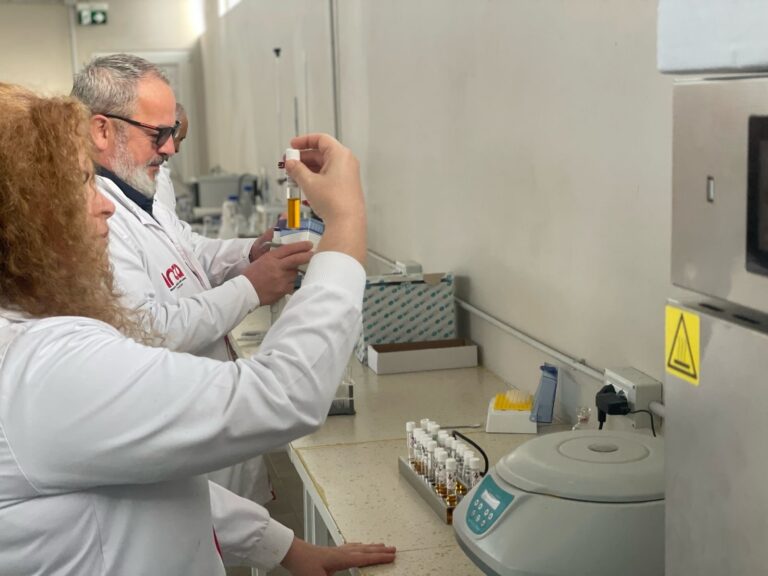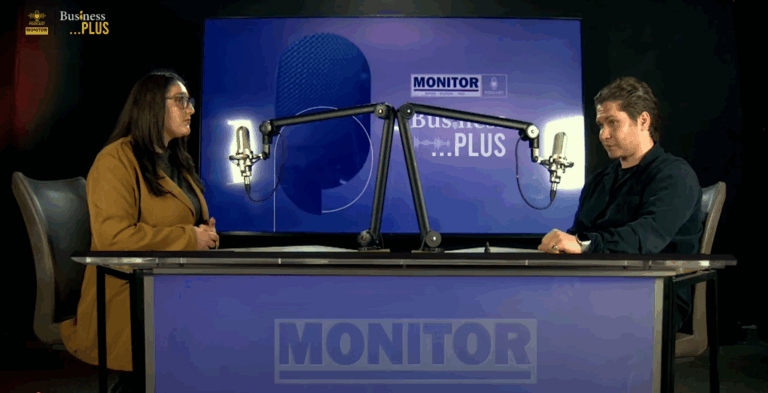- Drini Zusi, one of the key leaders of the AZ Group
Drini Zusi is a prime example of a new generation that has managed to build a strong position within the family business while also bringing a fresh managerial perspective to daily operations. Born and raised in an environment where work and responsibility were integral parts of life, he had the opportunity to contribute from a young age. Although his initial involvement in the family business began out of obligation—driven by his father’s and family’s ambitions to create a large and sustainable economic brand—Drini later found a new opportunity to develop the business further following his studies and professional experience in London.
What inspired you to join the family business, and how do you feel in this role?
It was my parents’ obligation, hahaha. The truth is, both my brother and I, since we were around 12 or 13, were always told by our father that we would study abroad and then return to work together. That was always his dream—but honestly, not mine. Until 2023, I was convinced, and I told my brother, my parents, and my friends that I would stay in Albania only until 2025 at most, and then I’d return to London. Not because I didn’t want to work with them, but because my personality was more drawn to life in London, and honestly, I felt a kind of disappointment in myself—I felt like I had somewhat lost the authenticity of the person I had become during those five years abroad—due to the need to readapt to life in Albania.
But today, I see things a bit differently, and I think it’s a matter of maturity—both personally and professionally. As 2024 comes to a close, I’ve spent five years as the head of a not-so-small company, and I feel more confident in my decisions, as well as more capable of contributing not only to our business but to society as well. Fortunately, the industries in which our family business operates allow me to do that. So, the inspiration didn’t come at the beginning to join, but it definitely came to stay—especially for one more reason. The positive impact I can have by doing well what our family does is much greater and more measurable than any impact I might create working at a big company or building a small company of my own abroad. Luckily, we Millennials are a generation raised with the spirit of impact, contribution, and social responsibility, so this role genuinely fulfills me.
How do you share responsibility with your family members in managing the business? Is there a specific division of roles you’ve created among yourselves?
Absolutely yes, though maybe not at the corporate level I would ideally like. This is also because the past few years have been extremely dynamic for us—both in terms of new investments and some challenges we’ve faced as a group of primarily exporting companies. As a result, in such situations, it’s sometimes hard to spend energy maintaining structure when you see that even the foundations might be at risk.
The truth is that among my father, my older brother, and me (just the three of us, since our mom has a cemented position as head of finance and we don’t interfere), there’s been a clear hierarchy from the moment I returned, and I think that’s a crucial first step. In a meeting or decision-making situation with senior staff or other company employees, I don’t have the right to overrule my brother’s decision, and neither of us has the right to overrule our father’s. But in family board meetings or even at home when we gather, we definitely discuss and may come to a different decision. For me, it’s always been important that this hierarchy functions, as it’s the only way to ensure that the managerial structure operates as a whole.
As for our roles in the structure: officially, I hold the role of Head of Business Development, my brother is the CEO of two of the businesses, and our father is the Group President. Practically, the departments are divided between the three of us—my brother and I cover all operational departments, while my father handles the strategic ones.
When did you start working in the family business, and what was your first experience like?
I first worked with my brother in the summer of 2010, when I was just 12 years old. At the time, we only had one factory, and during that summer, I did every task and process in the production department. Of course, not full-time. I’d start after 10 a.m. because I’d be sleeping on the office couch until then, hahaha, and I’d finish earlier because my hands or arms would hurt. That’s the first experience I remember—but of course, I also remember earning my first 1,000 ALL. I returned to Tirana and went to Kolonat to treat my friends with the money I had earned.
That was the first summer. After that, every following summer, my brother and I worked at least two full months. This is a big reason why we took on responsibility at a very young age—we know absolutely every process and every corner of our complex. In fact, we even helped build the other three factories, especially my brother.
After moving abroad for my studies in London, I returned and restarted work in January 2020. But honestly, it didn’t take me long to reestablish my place in the company. Even during my studies, every 2-3 months, I would return and spend 4-5 days working. While in university, I chose every subject—even my thesis—so that it would be as concrete and applicable as possible for when I came back to work. And that’s exactly how it turned out.
How have you developed your practical business experience, and how has that helped shape your management strategies?
By working from a young age, by shadowing my father during his lectures or meetings, and by following his example—those were my first steps. Then, during the five years I was abroad, I was lucky to meet excellent managers from whom I learned a lot. And for the things I learned, when I came back, I essentially had a lab in the company where I could test what resonated with me from others. For the first three years, I did every job. I wasn’t Drini—the owner’s son or Drini—the manager. I was Drini, the person trying to understand every process to improve it—and improve the employee experience in those processes too.
I’ve also been fortunate that, during these five years, our group has created four new companies and expanded beyond Albania. These developments are the kind of experiences that help you grow faster and help clarify what kind of manager you want to be and the strategies you’ll follow. For a very simple reason—you see what works and what doesn’t. They’re also great for testing different business theories. I often regret not reading more, but every year I try to finish at least 3–4 business books. And there are three books in particular that have helped me a lot, and I’ll always credit them as the ones that helped me gain clarity about what a leader’s role is, how to manage operations in a large company, and how to build company strategy.
What are some challenges you’ve faced during your adaptation period in this role, and how have you overcome them?
So many that I’ve lost count. Every week brings a new challenge—again, I think this is due to the fast-paced development we’ve experienced. But perhaps the biggest challenge was accepting that I needed to compromise with myself and accept the reality that building the team and management level I’d be satisfied with would take time. I couldn’t do it in just one or two years. The truth is that even after five years, I’m still not at the level I want. But a turning point came when someone told me a quote: “Don’t let perfection get in the way of progress.”
I’m a perfectionist by nature, but I’ve realized that perfection is unattainable—because the moment you think you’re close, the finish line moves again. At first, this used to upset me, but now I find it intriguing and motivating. And my biggest challenges are often the ones I create for myself—to keep reaching closer to that level I’ve always dreamed of.
What are your short-term and long-term goals for the business? How do you plan to achieve them?
My most important short-term goal is again related to the managerial structure: creating a structure that is self-sustainable. My goal has always been to build a system that functions like a well-designed machine, where everyone knows their role and doesn’t require constant intervention from me, my brother, or, ultimately, my father. I am the biggest enemy of micromanagement and the strongest supporter of autonomy and employee freedom in decision-making. Only this way can you get the best out of everyone. All three of us firmly believe that our task is not to be the smartest people in the room, but to create the opportunity to gather the smartest people and work together on creating new products and development models.
The sooner I achieve this objective, the sooner I can realize my long-term goals, which for now are two: expansion into all WB6 (Western Balkans 6) countries and expansion into the pharmaceutical sector. I proudly say that at AZ Group we have created, for the first time in Albania (just like all our previous businesses), an industry that produces raw materials for the pharmaceutical industry. The plan, as we’ve done with other businesses, is to move further up the value chain.
But none of these objectives are easily achieved, and the common thread among them is filling key roles in the team and continuously training them. This is exactly what I spend the most time on during the day, and for the first time in five years, I am very satisfied with the team we’ve built.
How do you manage the balance between your personal life and business commitments? Do you have a specific strategy that helps maintain this balance?
I know readers might not want to hear what I’m about to say, but I don’t have a 100% effective scheme for this or any secret trick to achieve it. The truth is, I don’t manage it as well as I should, and like most people, I still haven’t found that ideal balance. This is mostly in terms of physical aspects—finding time for sports, the gym, or just staying active. As for personal life—social outings or attending festivals—I’ve managed to find a good balance.
For years, I’ve worked an average of 13–14 hours a day, six days a week. Sunday is my recharge day, where I clean my room, organize books, pursue passions, listen to records on my record player, or cook—I have a routine that helps feed my soul and feel grateful for what I have. Every two months, I take a 2–3 day trip somewhere in Europe, to relax and escape the daily grind. While in Tirana, I rarely go out—more during summer—and mostly for client dinners, so I can combine both personal and professional time.
And the truth is, apart from the lack of physical activity, I’m very happy with this routine and wouldn’t want to have less work or more time to go out. There comes a moment when business feels like a big “flow state,” and when you’re in that state, nothing is more enjoyable.
What are some activities or hobbies that help you relax and stay fresh for business challenges?
This is my favorite question, and thank you for asking it. Not because I love talking about my hobbies or passions, but because I believe this is one of the areas where many businesspeople in Albania fall short—failing to develop personal passions. I see it as a shortcoming with many implications. As you rightly mentioned, practicing passions helps you forget challenges and stay fresh for what lies ahead. If stress isn’t released in this way, if the mind and body don’t relax, it reflects in the wrong places—on family, staff, clients, or suppliers.
I’ve had the fortune to live in both the United States and London. In both places, one of the things that impressed me the most was how professionals have at least two passions they actively pursue. I remember in 2018, a Lebanese friend told me something that stuck with me: “In life, a person should have three passions: one that keeps you physically fit, one that develops your creativity, and one that creates a passive income stream.”
I liked that so much that I’ve tried to implement it ever since. Practically, I play either tennis or football—sports are a passion of mine. My second passion is art, in many forms and disciplines, but especially contemporary art. I explore art by visiting modern art exhibitions around the world, buying artworks (those I can afford, of course), or painting. Last year, I started taking lessons in abstract painting, which I enjoy a lot—I’ve even created a small studio at home.
The third passion—the one that, according to the “rule,” should generate passive income—is writing. Since I was a child, I’ve had a love for writing, but I haven’t fully developed it yet.
Still, besides passions, what helps keep me grounded is meditation and spirituality. I’ve been meditating for almost 10 years—not daily, but now and then. I’ve also participated in several retreats. I spent a week in a Buddhist temple in China and, more recently, joined a three-day silent retreat. These activities help me connect more with my subconscious and, consequently, be more at peace with myself.
Who are some of the business heroes or role models that have inspired you, and how have they influenced your career?
Initially, it was my father. I believe for every boy, at some point in life, his father is his idol. And he still is, in many ways—especially for the principles and stoicism he demonstrated and tried to pass on to us. But, as often said, you shouldn’t get too close to your idols—because the more you know them, the more flaws you find. My father is absolutely still my idol for what he’s achieved from nothing, but truthfully, my business philosophy differs from his in some aspects. That’s why I also have three other role models who inspire me, and I try to model my leadership style based on their teachings.
The first is Ray Dalio, founder of Bridgewater Associates, the world’s largest hedge fund. His book Principles is one of the most influential books I’ve read. The systems he built to manage his company and team are models I’ve tried to implement in our company. But it’s not just that—his life story, how he hit rock bottom several times and rose again, is undeniably inspiring.
The second is Andrew Grove, the most famous CEO of Intel Corporation. Even now, despite my official title being Head of Business Development—since I also cover that department—I spend a good part of the day essentially acting as an Operations Manager. And the person I’ve learned the most from about designing company processes and measuring employee productivity is Grove. He’s the person who gave today’s successful CEOs the blueprint for company management and goal-setting, also inspiring the book Measure What Matters, which revolutionized management with the OKR (Objectives & Key Results) concept. As someone passionate about management and efficiency, Grove’s books and videos have greatly shaped my thinking.
The third is actually a fictional character. Still, in terms of leadership style, she resonates the most with my personality: Jessica Pearson, CEO of Pearson Hardman from the TV series Suits. Suits is probably the most famous legal series ever, and I’m sure many readers know this character. What inspired and impressed me about her was the strength she displayed in dealing with situations and her direct, no-compromise attitude. That resonates with me, because my leadership style is also based on two main pillars:
Being brutally honest at all times.
Being direct, with no hints or hidden meanings—thus leaving no room for misunderstandings.
Only in this way, in my opinion, can you build a team with blind trust in one another, in both good and bad times. But above all, only in this way can you build a team based on respect—strong and sustainable—with each member knowing exactly where they stand.
Has there been a specific person in the family business who helped prepare you for this role, and how did they support you?
Absolutely. Over the years, I’ve had the support of many colleagues within the company, and perhaps the greatest support has been their trust in me to lead. But the ones who truly helped prepare me for this role and mentored me were two individuals. Both were, at different times, external consultants we hired—initially to help us establish standards and operational procedures, and later for HR and strategy. With both of them, beyond the consultancy, I developed deeper relationships and I often express my gratitude for their willingness to give more of themselves and mentor me. As Tony Robbins says, a leader should always have two mentors in life, and I feel lucky to have them. Without their help, I wouldn’t have had the courage to take many of the risks I’ve taken over the years.
What are some of the most important lessons you’ve learned while preparing for and adapting to the role of an entrepreneur?
There are many lessons, as you learn something new every day—especially when you’re this young. But the most important ones are these three:
Setting moral principles and committing 100% to never break them.
I remember in the Business Ethics course at university, the professor used to say that the line between ethical and unethical behavior in business is very thin—almost invisible. That’s why it’s hard to notice when you cross it, especially because of the justifications you make to yourself. But once you cross that line, it’s very hard to go back. If you betray your own principles for financial or even momentary gains, you’ve betrayed yourself—and in turn, you can’t expect others not to do the same. The temptation is always very strong, but the satisfaction of doing the right thing and resisting that temptation is even greater.Never compromising when it comes to violations of values, rules, or procedures—by anyone.
I’ve never known, and I don’t believe I ever will know, a company that is successful over the long term without a well-defined management system and structure based on values, rules, and procedures. For a company to be successful and for staff to feel satisfied working there, the system must be equal for everyone, and the system must always be above the individual—never the individual above the system. The primary responsibility of an entrepreneur or leader is to ensure that the company environment offers everyone the opportunity to be successful and feel fulfilled in their work. Therefore, compromises must never be made, and no one should be allowed to undermine that system.Having patience, because everything takes time.
One of the characteristics of being young is being impulsive. It’s understandable, because youth is accompanied by dynamism, and on top of that, we’re always racing against time to prove our worth to ourselves and to others. I’ve made this mistake too—many times, in fact—where I tried to rush things thinking I could achieve them quickly. Or maybe I made promises and then failed to fulfill them. Unfortunately, I’ve broken a few promises. But I’ve learned from this, and that’s why I consider it one of the most important lessons—one that every entrepreneur should know.
This article was originally published by Monitor.al on January 31, 2025. You can read the original publication here: https://monitor.al/menaxhimi-modern-dhe-brezi-i-ri-ne-biznesin-familjar/.
All copyright belongs to Monitor.al.
